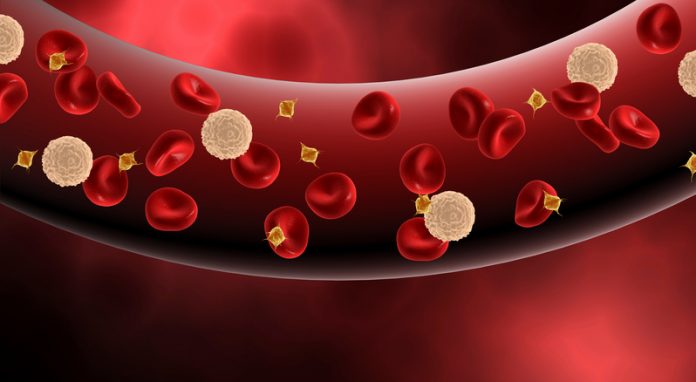
A gene variant, linked with facial flushing after drinking alcohol, may increase the risk of heart disease by affecting the inner cells lining blood vessels, a study suggests.
Researchers found that the aldehyde dehydrogenase 2 (ALDH2*2) polymorphism could impair vascular function by increasing oxidative stress and inflammation in the endothelium.
Alcohol consumption exacerbated these effects, while the diabetes drug empagliflozin— a sodium-glucose transporter 2 inhibitor (SGLT2i)—counteracted them.
The findings, in Science Translational Medicine, suggest empagliflozin could therefore play a role in mitigating the risk of coronary artery disease (CAD) among variant carriers.
“Our study elucidated the cellar and molecular mechanisms of vascular dysfunction in ALDH2*2 carriers and also showed how SGLT2i empagliflozin can mitigate the stress,” said senior researcher and Stanford Cardiovascular Institute director Joseph Wu, who is also president elect of the American Heart Association.
He told Inside Precision Medicine: “Collectively, our findings suggest that alcohol consumption should be tempered in ALDH2*2 carriers.”
The missense variant ALDH2*2 affects approximately 8 per cent of the world’s population and is particularly common in people with East-Asian heritage.
Even heterozygous carriers experience a severe loss in activity of the ALDH2 enzyme, which is critical to the second stage of alcohol metabolism and it has also been linked with CAD.
To investigate further, Wu and colleagues conducted a genome-wide analysis of 29,319 cases of CAD and 183,134 control individuals from Biobank Japan, one of the world’s largest disease biobanks.
Results showed that the ALDH2*2 variant was strongly associated with CAD.
Further studies in nine healthy men who were heterozygous for the gene variant versus nine wild-type men revealed that even one standard alcoholic drink resulted in acute endothelial-cell dysfunction in carriers.
Additional research was then conducted in 424,507 people included in the UK Biobank who said they drank alcohol.
This revealed that ALDH2*2 carriers who self-defined as chronic drinkers had an approximately four-fold greater risk of CAD.
The researchers used transcriptome profiling to identify down-regulation of the AKT pathway, which is vital for vascular homeostasis, in ALDH2*2 endothelial cells derived from induced pluripotent stem cells and found that it may play a crucial role in endothelial dysfunction relating to the gene variant.
Empagliflozin counteracted endothelial dysfunction associated with the gene variant in vitro and in mice by inhibiting activity of the membrane protein Na+/H+ exchanger isoform-1 and restoring AKT and endothelial nitric oxide synthase signaling.
“Precision medicine for CAD patients with genetic variants holds promise as a new approach toward more effective prevention and treatment by understanding their physiological mechanisms and causal relevance,” the authors note.
They add: “In the future, clinical trials should investigate whether the ALDH2*2 variant and alcohol consumption exacerbate endothelial dysfunction in diabetics or those with existing CAD.
“These studies should also test whether empagliflozin ameliorates ALDH2*2-mediated atherosclerosis in the setting of diabetes or CAD.”













